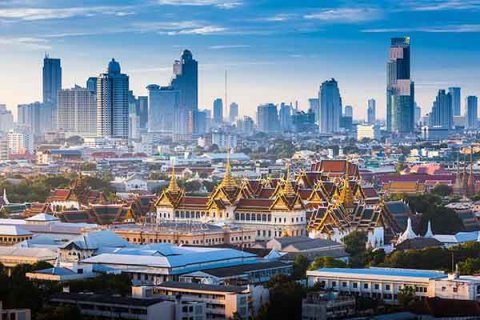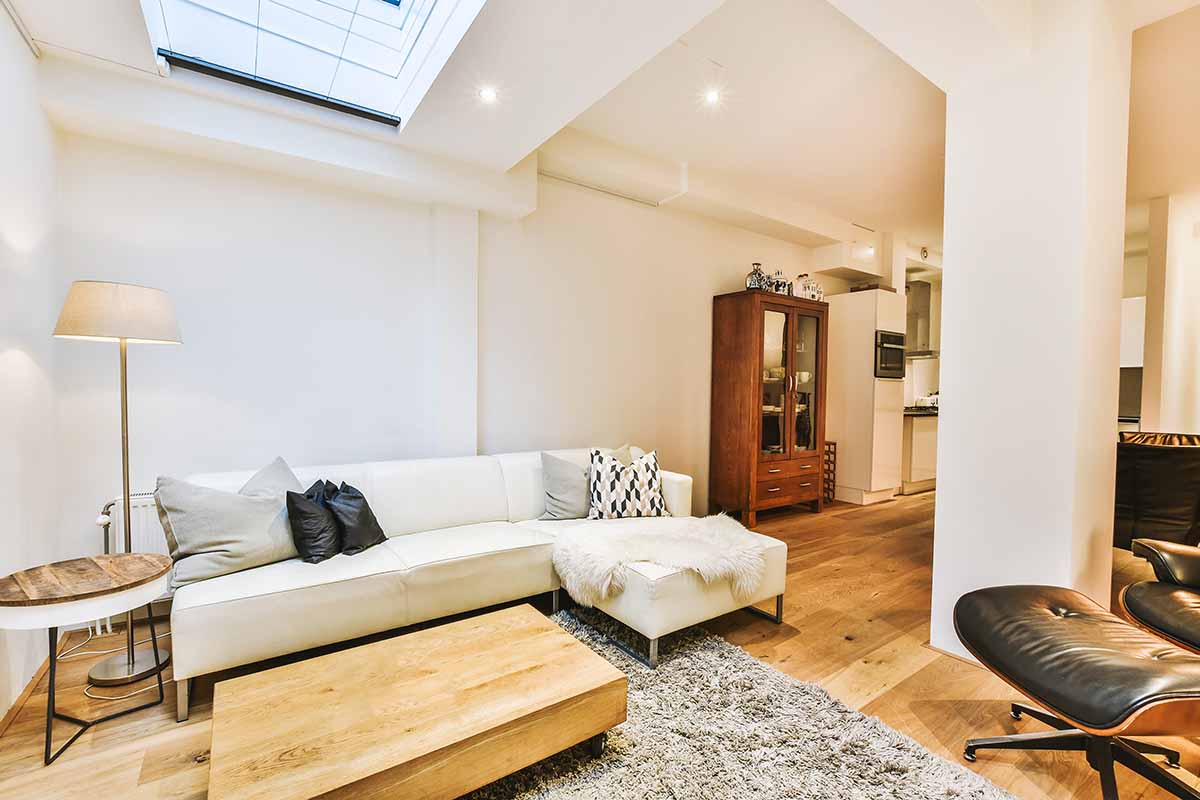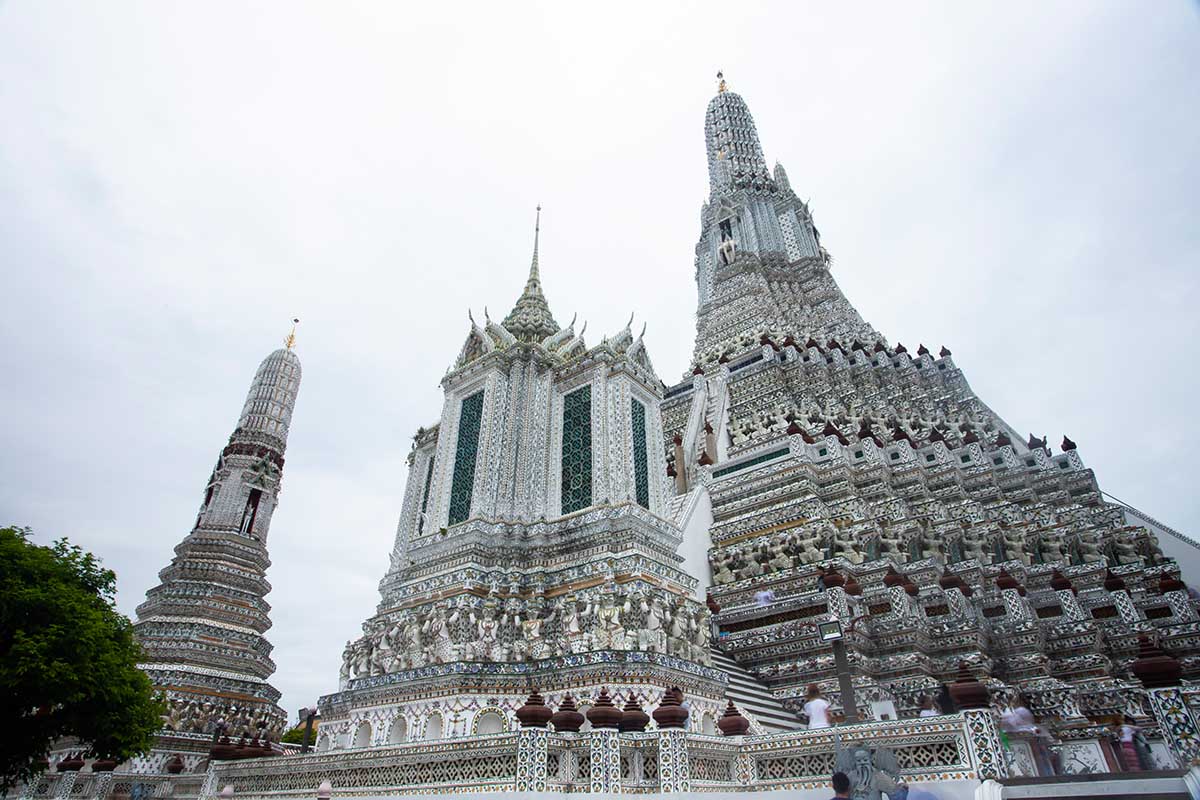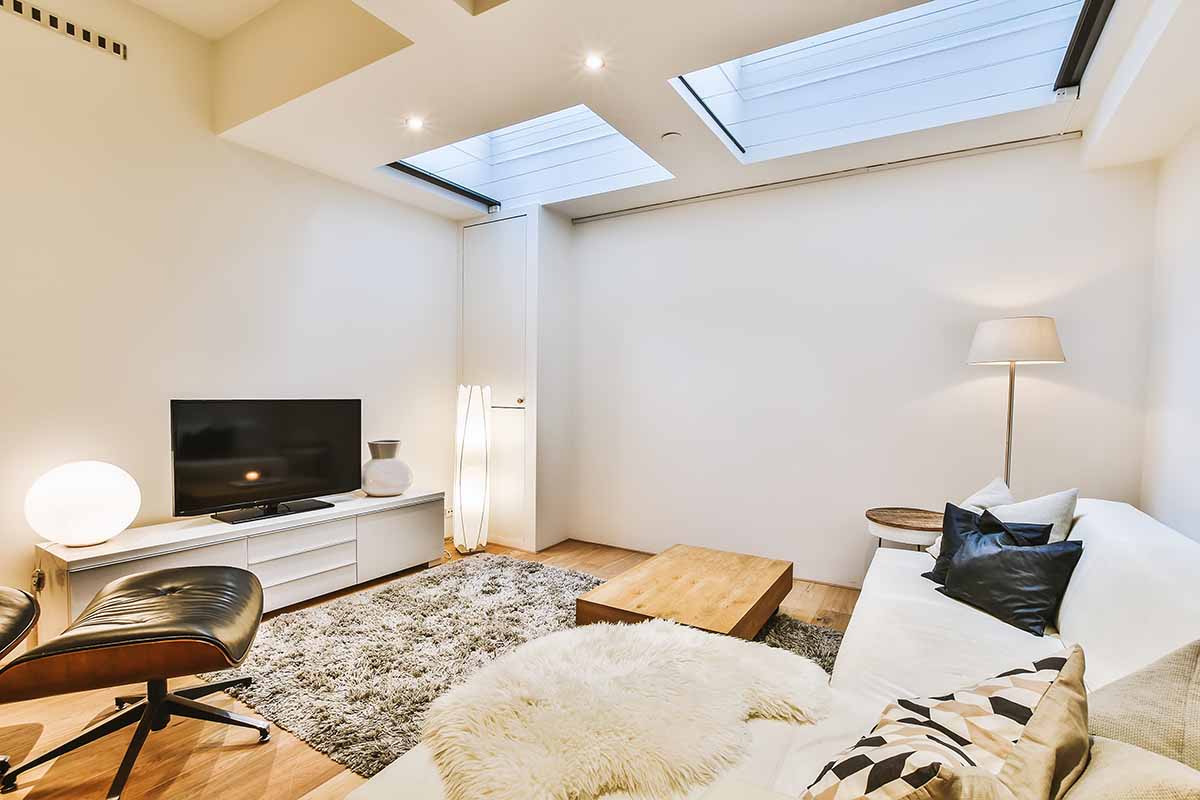
Many foreign citizens are considering moving to Thailand in 2024. This colorful country in Southeast Asia attracts expatriates and tourists not only with year-round warm weather but also with magnificent natural landscapes, picturesque beaches, and high-quality infrastructure. The Thai economy is developing steadily, the local currency exchange rate is stable, and inflation is within acceptable limits.
Content:
- Advantages of moving to Thailand
- The advantages of living in Thailand
- The disadvantages of moving to Thailand
- Relocating options
- How to get Thai citizenship in 2024
- Adjusting to a new place
- Advantages of buying property in Thailand
- Let us help you find your dream property in Thailand!
Among the features of local cities is the combination of high-quality urban infrastructure and picturesque tropical forests. Natural parks here are home to elephants, monkeys, and many other species of animals. When talking about what the country is famous with, it's impossible not to mention:
- Buddhist temples with magnificent architecture.
- Vibrant markets where you can buy seafood, fruits, handicrafts, and even order ready-to-eat meals.
- Perfect beaches.
- Small uninhabited islands not far from the coast. You can reach them by boat and enjoy complete isolation.
Advantages of moving to Thailand

In the decision process to move to Thailand, the economic aspect plays a significant role. It is believed that the cost of living in the country is relatively low. It's easy to find affordable housing, food, clothing, and basic necessities. There are no heating costs, and the highest bill is usually for electricity, which is mainly used to air conditioning. The average electricity rate in 2022 was $0.12 per 1 kWh. Servicing an 85-square-meter apartment would cost about $64 per month.
Emigrating to the country is suitable for those who prefer to live in a warm climate, love nature and are passionate about surfing and other water sports. Many people who are tired of living in the concrete jungle of modern metropolises often choose to move here. Popular with English-speaking expatriates, Phuket is known for its abundance of tropical forests, parks and beautiful beaches. Here you can fully enjoy the peace and unity with nature.
Moving to Thailand is often chosen by employees of international companies, bloggers, and freelancers, who have the opportunity to work remotely. Businessmen and investors looking to invest in various sectors of the economy can also establish themselves here. By opening a business, you can purchase land and build a hotel or small guesthouse for rent.
The advantages of living in Thailand
Those who have decided to move to Thailand note numerous advantages of living here, including:
- Housing, food, clothing, and necessities at affordable prices.
- High quality medical care.
- Availability of international schools and nurseries.
- Good living and leisure infrastructure: modern shopping malls and traditional markets, supermarkets and shops within walking distance, numerous restaurants and eateries, massage, and spa centers.
- Warm weather year-round.
- Wide variety of tropical fruits, seafood, and fish.
- Rich cultural and historical heritage: magnificent temples, historic parks, archaeological monuments, and ancient city ruins.
- Beautiful nature: tropical forests, sandy beaches, tree-covered mountainsides, waterfalls, caves, uninhabited islands.
- Good ecology due to the abundance of forests and natural parks.
- Friendly attitude of the locals towards foreigners.
The disadvantages of moving to Thailand
Immigrating to Thailand has some disadvantages. Expatriates who have previously lived in a temperate continental climate may find it difficult to adjust quickly to the hot and humid weather. There is also a rainy season with heavy tropical downpours at certain times of the year. However, most people adapt to the local climate after some time and enjoy the sun, warmth, and relaxation of the ocean.
Among the disadvantages of moving to the country is the inability to obtain residency status by purchasing property. However, a non-immigrant visa is sufficient for permanent residence in the country.
The language barrier is not a significant disadvantage. About 30% of Thais speak English. These tend to be residents of major cities and employees of companies that work with foreign clients. Many expatriates do not bother to learn the Thai language. To communicate in simple everyday situations, a small amount of commonly used phrases and numbers is usually sufficient.
Those planning to invest in Thai real estate should consider local taxes. Foreigners who rent out property are subject to a 15% income tax on their total income. From 2024, residents will have to pay tax on all income, including that earned abroad.
Relocating options
If you're considering moving to Thailand, the first step is to obtain the necessary residence permits. Currently, there are several long-term visas that allow a one-year stay in the country. The most common types are:
- Work Visa
- Investment Visa
- Educational Visa
- Family Visa
Many migrants choose an educational visa because there is no age limit, and it can be extended multiple times for the duration of the study. To obtain this type of visa, you don't necessarily have to enroll in a local university; it's enough to attend a language school where you can learn English, Thai, Chinese, and other languages. Enrolling in a language school is a formality, and these educational institutions often don't strictly monitor attendance. The cost of processing all the necessary documents and the visa is approximately $1,000.
Another common type of visa is used by parents whose children are enrolled in a Thai school. Educational institutions can provide documents based on which a student visa is issued for the child and a guardian visa for one of the parents. The cost of obtaining such a visa is approximately $1,500.
How to get Thai citizenship in 2024
Thai citizenship can be obtained in two ways: by birth, if one of the parents has a local passport; and by naturalization. In the latter case, the applicant must be:
- Be over 18 years old.
- Have no criminal record.
- Have lived in the country at least 5 years.
- Work or run a private business.
- Be able to speak and write Thai.
- Score at least 50 points according to the Applicant Evaluation System.
The applicant scoring system considers various parameters such as age, income, education, Thai language proficiency, and length of residence in the country.
The process of obtaining citizenship consists of several steps:
- Submitting an application and document package to the Immigration Department.
- Paying the fee.
- Fingerprinting.
- An interview in Thai with a local police officer.
It's important to note that a Thai citizen cannot be a subject of another country at the same time. Children under the age of 18 have the right to maintain dual citizenship but must renounce one upon reaching the age of majority.
Adjusting to a new place

To make a final decision about moving to Thailand, you can spend a few months or the entire winter season here. This will allow you to understand the cost of living, observe the quality of life in different regions, and determine how comfortable you are in a tropical climate.
One of the things to know about the country for tourists or expatriates is the more relaxed lifestyle, especially in the resort areas. While life in Bangkok is more dynamic, places like Phuket, Samui and Pattaya have a resort atmosphere. Here you will find both quiet areas suitable for a relaxed family life and areas where nightclubs, bars and restaurants are bustling. There are also upscale neighborhoods with residences close to beaches, nature parks, and golf clubs.
When it comes to residents of western countries, adapting to Thai conditions often means getting used to the local cuisine. The main tastes here are spicy, sour, and sweet. For those not used to spicy food, many dishes may seem too hot. Unusual flavor combinations can also be a challenge for some. Nevertheless, many foreigners appreciate Thai cuisine for its rich spices, variety of seafood and vegetables.
Advantages of buying property in Thailand
Ownership of apartments in Thailand is available to foreign citizens, and they can purchase housing in condominiums with freehold status. Today, many new condominium developments are being built in resort areas where apartments are offered at reasonable prices with interest-free installment plans. Such properties are an excellent investment. During the construction of these complexes, real estate prices tend to increase. On average, the value of an apartment increases by 10–15% annually. Over the past 10 years, prices of property in Thailand have increased by 300% and continue to rise gradually.
Finished properties can be resold or rented out. Thai resorts are popular with tourists all year round, and rental property owners should expect a guaranteed passive income. The average rental income across the country is 5%, but in popular resort areas this figure may reach up to 10% per year.
Buying apartments in new buildings and villas in Thailand has the following advantages:
- Modern and functional layouts, panoramic windows, and high-quality finishes.
- Various amenities and hotel-like services (in some developments).
- The opportunity to buy directly from the developer at an attractive price.
Let us help you find your dream property in Thailand!

You can choose the optimal real estate option for investment or permanent residence with the help of a convenient catalog on the Thailand-Real.Estate website. We only list properties from verified developers and real estate agents. Our user-friendly search system, with a wide range of filters, allows you to select offers that are of interest to you easily and quickly. If needed, you can always contact our operator to get assistance and advice.
